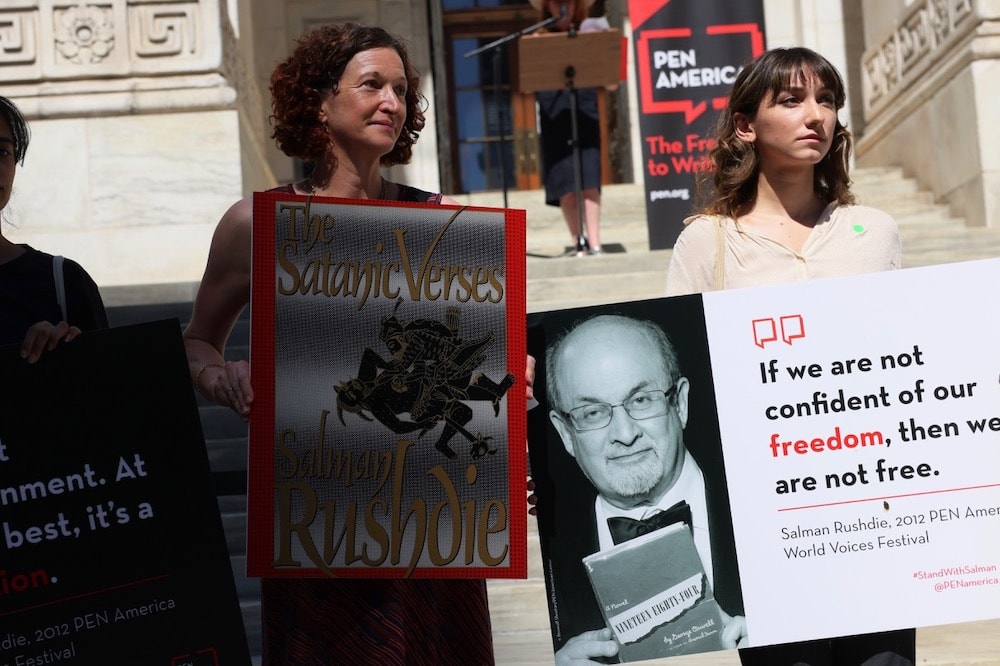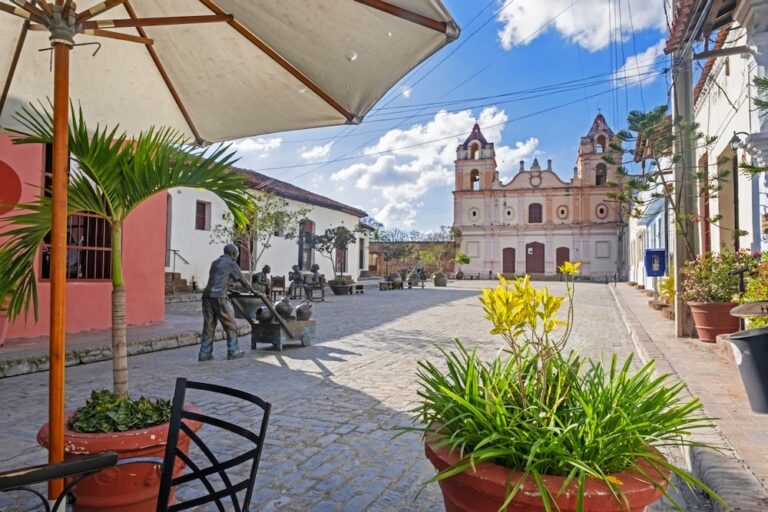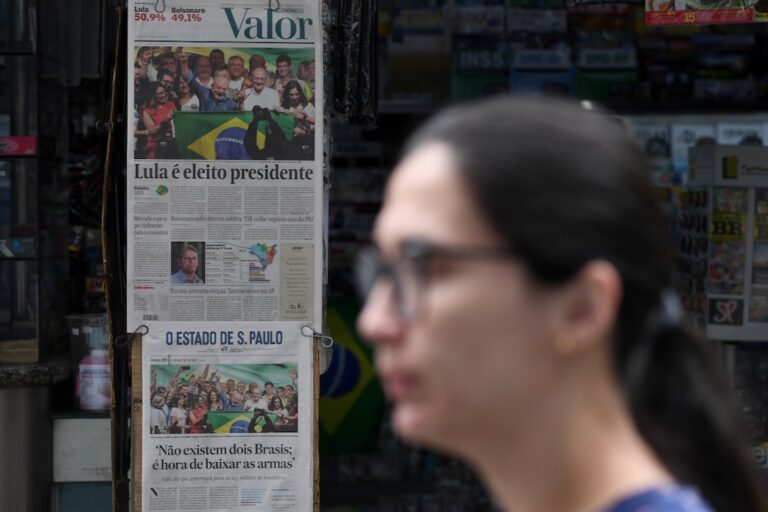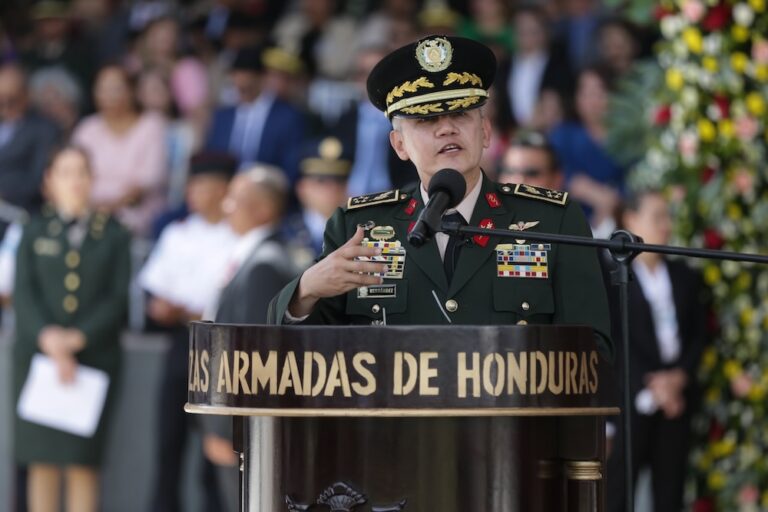August 2022 in the Americas: A free expression round up produced by IFEX's Regional Editor Laura Vidal, based on IFEX member reports and news from the region.
The attack against Salman Rushdie in the United States unites writers and rights defenders in defence of freedom of speech; civic space and freedoms in Central America face extraordinary challenges; and Brazil prepares for a difficult election period amid disinformation and efforts to limit public participation.
Salman Rushdie: “… an attack on us all”
The horrific attack perpetrated against Salman Rushdie at the Chautauqua Institution in western New York State shocked organisations devoted to freedom of speech around the world, but certainly did not silence them.
The attack has been linked to the fatwa pronounced against Rushdie in 1989, when Iran’s Ayatollah Khomeini called for his murder, as well as the murder of anyone associated with his book The Satanic Verses. Rushdie went into deep hiding for almost a decade before beginning to resume public life. Thirty three years later, this attack has prompted worldwide outrage and calls to defend freedom of speech, particularly the freedom to write creatively and challenge those in power. In a piece in The New Yorker, Robin Wright notes that “the fatwa lingers as a flash point in Iran’s internal debates and a political tool exploited by its hard-line leaders.”
Shortly after the attack, hundreds of people, among them fellow writers and admiring readers, gathered at the New York Public Library in support of Rushdie, reading some of his works, and hoping for his recovery. Many analysts see it as a “lone wolf attack” and the Iranian government has denied any involvement. The alleged perpetrator, Hadi Matar, 24, is being held without bail in western New York on second-degree attempted murder and assault charges. Rushdie is recovering, but has severe injuries, including nerve damage in the arm, wounds to the liver and the probable loss of an eye.
In their statement, PEN Canada highlighted Rushdie’s own words on freedom of speech, and how it extends well beyond the messenger:
“Let’s remember that the freedom of speech is not just the freedom of a writer to write, but the freedom of a reader to read, the freedom of a publisher to publish, the freedom of a bookseller to sell books… of all of us to decide for ourselves what ideas we choose to bring into our homes and into our hands – into our minds.”
Central America: “Legalized authoritarianism”
The last few years have seen a slow but steady return to authoritarianism, with dangerous consequences for both civic space and freedom of expression in countries throughout the region. Covering up government corruption remains a strong motivator as the strategies multiply and intertwine: from dismantling judicial systems to the persecution and criminalization of the press, media workers in general, and human rights defenders.
According to ARTICLE 19 Mexico and Central America, the state of freedom of speech in the region is in “critical condition” and participation in civic space has been co-opted. Political opposition has been suppressed, civic society leaders and journalists have been forced into exile, and judicial workers have been harassed.
Guatemalan outlet Plaza Pública describes this phenomenon as “legalised authoritarianism” and underscores how the law and law enforcement agencies are used to silence and suppress the work of journalists and human rights defenders. This is especially evident among indigenous communities in rural areas fighting against foreign companies extracting – and contaminating – their lands, with both the favour and protection of the State.
The latest case in Guatemala took place earlier in August with the arrest of José Rubén Zamora, president of elPeriódico newspaper. Media outlet El Faro observed how the “questionable” case against the renowned journalist only took 72 hours to be prepared.
Zamora’s case is not the only one in Guatemala: Sunny Figueroa was also arrested under dubious charges in 2020 after publishing investigations into government officials. Outside of Guatemala city, indigenous journalists Carlos Choc and Anastasia Mejía Tiriquiz , among others, have also faced harassment and attempts to criminalize them in 2021 and in recent months.
Meanwhile, in Nicaragua, it is becoming hard to find any remaining civil liberties. Only this month, numerous radio stations and news outlets were shut down or further harassed. Since May, around 770 civil society organisations have been closed; these include some devoted to academic and artistic work, as well as women’s and indigenous rights). A new law that can restrict civil society work further came into force, as well as a proposal to expand prison sentences in the Penal Code for crimes against “national integrity”.
A similar pattern of stigmatizing the media continues in El Salvador, where President Bukele’s anti-press rhetoric is well known. Earlier this year, around 35 journalists – many from El Faro – and NGOs discovered they had been targeted with Pegasus spyware.
A couple of months later, a broad state of emergency was declared in the country after sixty-two people were killed in one day, apparently by gangs – the highest daily homicide rate in several years. The state of emergency led to tens of thousands arrested and a rise in human rights abuses.
Smear campaigns against the media have also become more common in Costa Rica, until recently an exception in the region. Recently elected President Rodrigo Chaves wasted no time portraying the press as his antagonist, calling them “Feudal lords,” “Rats,” and “Bad people looking to harm this country.”
One need only look at the rest of the region to see what is to come if these attacks escalate.
An extreme example is Honduras, where the last 20 years have witnessed a dramatic escalation of violence against journalists, with 96 killed, making it one of the most dangerous countries in the world to be a journalist. In 2022 alone, C-Libre recorded 34 attacks against journalists, communicators and freedom of speech in general.
In spite of the severity of the challenges, journalists and human rights defenders remain defiant and attentive, organising, denouncing and demanding justice for the region, even from exile. At least 120 journalists have left Nicaragua, but many of them keep their outlets alive from abroad. Campaigns rejecting attempts to restrict civic freedoms continue to proliferate internationally; the creation of a special mechanism to investigate human rights abuses in Nicaragua was the fruit of one of such strategies.
Brazil: Promoting free and fair elections in a wounded civic space
Brazil is bracing for a particularly critical election (both presidential and congressional) in October, with current president Jair Bolsonaro facing ex-president Luiz Inácio “Lula” da Silva in a context characterized by attacks against freedom of expression, restrictions on public participation, and limits on access to information. With regular attacks against journalists, misinformation coming from public figures, and the constant menace of violence, all the pieces seem to be in place for a tension-filled trip to the polls for Brazilians. As Bolsonaro’s support seems to decline and he calls for support among his evangelical base, some fear that if he loses, he will not go quietly.
Recent history does little to relieve the general anxiety. Artigo 19 Brazil has produced a thorough summary of what civil society has gone through, with Bolsonaro in the country’s highest office. The many challenges include his notorious rhetoric against journalists, as well as the abusive use of laws and court decisions to restrict not only the work of the press, but also political opponents and public demonstrations. Politically motivated violence targets women journalists and communicators particularly – as well as elected female, black, LGBTQIA+ and economically disadvantaged representatives. Indigenous people and journalists covering vital stories of extraction and abuse in the Brazilian amazon are also common targets.
At the same time, disinformation campaigns orchestrated out of public offices are using a variety of methods to sway voters – methods that change faster than the capacity of people to become information savvy. According to an investigation by Global Witness, Facebook’s efforts to detect election-related misinformation have failed. Meanwhile, in spaces most prone to the sharing of misinformation, like WhatsApp, there is little to no oversight.
These many challenges have not discouraged human rights defenders and civil society organisations. Numerous campaigns, among them IFEX’s, are encouraging people to vote and to be informed of the challenges ahead, while numerous others are gathering at events that resonate deeply within Brazilian society and that echo important historical moments in defence of democracy and the rule of law.
In brief
Violence increases in Ecuador: With the killings of two journalists in June, new calls for the implementation of a protection mechanism have been put forward. The protection mechanism was recommended following investigations into the tragic case of the journalistic team from El Comercio newspaper that were assassinated along the Colombian border in 2018.
Violence against journalists takes four more lives in Mexico and Colombia: Fredid Román, from La Realidad newspaper, was shot close to his home in the Mexican state of Guerrero. While Cándida Vázquez, who had been reported missing since late July, was found dead in a canal in Sinaloa. The deaths of Vázquez and Román mean that 14 journalists have been killed in Mexico so far this year. Meanwhile, In Colombia, journalists Leiner Montero and Dilia Contreras were shot in the municipality of Magdalena.



